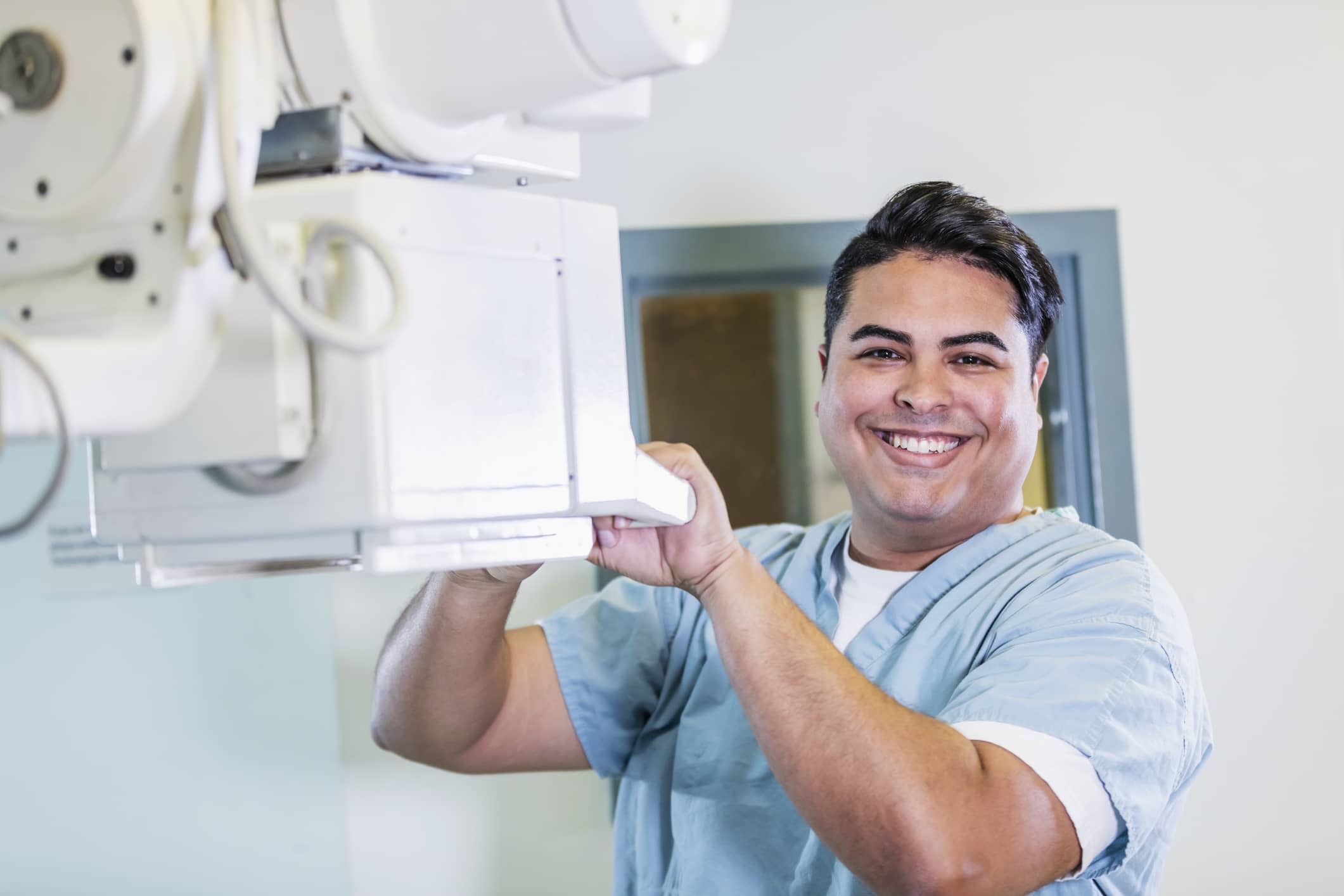
Navigating the Maze of Hospital Protocols as a Travel CT Tech
In the dynamic world of healthcare, travel CT techs stand out as versatile professionals who adapt to varying hospital environments, all while providing essential imaging services. But how do you manage when each facility you work at has its own unique set of protocols and procedures? This blog post offers a roadmap to success for travel CT techs, ensuring a seamless transition between computed tomography jobs. Whether you're embarking on your first assignment or you're a seasoned pro seeking to refine your skills, you'll find valuable strategies here to help you excel and adapt in any healthcare setting.
Understanding the Role of a Travel CT Tech
The role of a travel CT tech goes beyond operating imaging equipment. It requires the ability to quickly acclimate to new environments, work with diverse teams, and uphold the highest standards of patient care. Each hospital you enter has its own distinct culture and workflow, making adaptability a crucial skill. Understanding the core responsibilities and expectations is the first step toward mastering this role. A travel CT tech must not only be proficient in technology but also adept at communicating with patients and collaborating with other healthcare professionals.
In addition to performing scans, CT tech responsibilities often include maintaining equipment, ensuring patient safety, and managing records. These tasks require a thorough understanding of both technical and administrative protocols. Becoming familiar with these responsibilities in advance can make your transition smoother. Additionally, hospitals may have specific requirements for handling sensitive patient data, which you'll need to learn and adhere to quickly.
Another key aspect of the job is the ability to provide emotional support to patients undergoing scans. This involves clear communication, empathy, and the ability to reassure patients who may be experiencing anxiety. By building rapport with patients, you enhance their experience and contribute to a positive hospital environment.

Researching Hospital Protocols Before Arrival
Preparation begins before you even set foot in a new facility. Researching the hospital's protocols ahead of time can significantly ease the transition. Start by reaching out to the facility's HR or imaging department to request any available resources or orientation materials. This will give you a head start on understanding their specific procedures and expectations.
Online resources can also be invaluable. Many healthcare facilities have websites or portals where you can access important information about their protocols. Look for employee handbooks or procedural guides that can provide insight into their operational standards. Additionally, forums and online communities for travel CT techs can offer firsthand accounts and tips from others who have worked at the facility.
Another useful strategy is networking with colleagues who may have experience at the hospital. They can offer personal insights and advice on navigating the particular challenges of that environment. By proactively gathering information, you equip yourself with the tools needed to hit the ground running.
Adapting Quickly to New Procedures
Upon arrival, the ability to adapt quickly is crucial. Start by attending any available orientation or training sessions offered by the hospital. These sessions are designed to familiarize you with their specific protocols and introduce you to key staff members. Take advantage of these opportunities to ask questions and clarify any uncertainties.
It's important to remain observant during your first days at a new facility. Pay attention to how procedures are carried out and note any differences from your previous experiences. Observing experienced colleagues can provide valuable insights into the nuances of their workflow. Don't hesitate to ask for guidance or clarification when needed.
Flexibility is key when adapting to new procedures. Be prepared to modify your approach based on the hospital's unique requirements. This may involve adjusting your communication style, learning new software, or adapting to different equipment. By maintaining an open mind and a willingness to learn, you'll be better equipped to integrate seamlessly into any team.
Building Relationships with Colleagues
Establishing strong relationships with colleagues is vital for a smooth transition. Introduce yourself to team members and express your eagerness to collaborate. Building rapport with colleagues not only fosters a positive work environment but also provides a support network when you need assistance or advice.
Effective communication is the foundation of successful teamwork. Take the time to listen actively and engage in conversations with colleagues. This demonstrates your respect for their expertise and your willingness to contribute to the team. By fostering a culture of mutual respect, you'll create an atmosphere where everyone feels valued and supported.
Remember, your colleagues are your most valuable resource. They possess firsthand knowledge of the hospital's protocols and can offer insights that you might not find in written guides. Don't hesitate to seek their guidance when faced with unfamiliar situations. By fostering a collaborative spirit, you'll thrive in any healthcare setting.
Maintaining Consistent Quality of Care
Regardless of the hospital or clinic you find yourself in, maintaining a consistent quality of care is paramount. This involves adhering to established protocols and ensuring patient safety at all times. Prioritize accuracy in your work by double-checking patient information and following proper scanning procedures.
Patient-centered care should always be at the forefront of your practice. Take the time to communicate clearly with patients, explaining procedures and addressing any concerns they may have. By establishing a strong rapport, you help alleviate anxiety and create a more positive experience for patients.
Additionally, staying updated on industry best practices and advancements in technology is essential for providing high-quality care. Attend workshops, webinars, and conferences to enhance your skills and knowledge. Continuous learning not only benefits your professional development but also ensures you remain at the cutting edge of CT technology.
Navigating Hospital Hierarchies
Understanding hospital hierarchies is crucial for effective communication and collaboration. Familiarize yourself with the organizational structure of the facility and identify key personnel in your department. This knowledge will help you streamline communication and ensure you're addressing the right individuals when necessary.
Respectful communication is key when interacting with colleagues and supervisors. Address individuals by their appropriate titles and engage in professional discourse. Demonstrating respect for the hierarchy fosters a positive work environment and encourages mutual cooperation.
When faced with challenges or conflicts, approach them with a problem-solving mindset. Seek input from colleagues and supervisors, and work collaboratively to find solutions. By maintaining open lines of communication and demonstrating professionalism, you'll navigate any challenges with ease.
Overcoming Challenges and Roadblocks
Challenges and roadblocks are inevitable, but how you handle them is what sets you apart. When faced with obstacles, remain calm and composed. Assess the situation objectively and consider potential solutions. Remember, your ability to adapt and problem-solve is a valuable asset.
Seek support from colleagues and supervisors when needed. They can offer guidance and insights based on their experiences. Don't hesitate to ask for help or clarification when something is unclear—it's a sign of strength, not weakness.
Maintain a positive attitude in the face of adversity. Challenges are opportunities for growth and learning. By approaching each situation with optimism and resilience, you'll develop the skills needed to overcome any obstacle that comes your way.
Leveraging Technology for Efficiency
Technology is a powerful tool for enhancing efficiency and accuracy in your work as a travel CT tech. Familiarize yourself with the hospital's electronic health record (EHR) system and any other software platforms they use. This knowledge will streamline your workflow and reduce the risk of errors.
Take advantage of online resources and training modules to stay updated on the latest technological advancements in the field. Understanding new tools and software can enhance your productivity and improve patient outcomes.
Incorporate technology into your daily routine to automate repetitive tasks and reduce administrative burdens. By leveraging technology effectively, you'll have more time to focus on patient care and deliver exceptional service.
Enhancing Professional Development
Professional development is a continuous journey, and as a travel CT tech, you have unique opportunities for growth. Seek out additional training or certifications to expand your skill set and knowledge. These credentials not only enhance your resume but also demonstrate your commitment to excellence.
Networking with other healthcare professionals can open doors to new opportunities and insights. Attend conferences, workshops, and industry events to connect with peers and learn from experts in the field. Building a strong professional network can provide valuable support and guidance throughout your career.
Reflect on your experiences and identify areas for improvement. Set goals for your professional development and track your progress. By actively seeking opportunities for growth, you'll remain adaptable and ready to tackle new challenges.
Balancing Work and Life
Maintaining a healthy work-life balance is essential for your well-being and job satisfaction. Set boundaries to ensure you're not overextending yourself and prioritize self-care. Taking breaks and engaging in activities you enjoy outside of work is crucial for recharging and preventing burnout.
Effective time management is key to balancing your professional and personal responsibilities. Plan your schedule and allocate time for work, relaxation, and social activities. By managing your time effectively, you'll reduce stress and enhance your overall quality of life.
Remember, your well-being directly impacts your ability to provide quality care. Prioritize self-care and make time for activities that bring you joy. By nurturing your physical and mental health, you'll be better equipped to excel in your role as a travel CT tech.
Staying Connected with the Travel CT Tech Community
Being part of the travel CT tech community offers numerous benefits. Engage with fellow professionals through online forums, social media groups, and professional organizations. These platforms provide opportunities to share experiences, seek advice, and stay informed about industry trends.
Participating in community events and conferences allows you to network with colleagues and learn from industry leaders. These interactions can offer valuable insights and opportunities for collaboration.
Remember, you're not alone on this journey. The travel CT tech community is a valuable resource for support, encouragement, and professional growth. Stay connected and leverage this network to enhance your skills and knowledge.
Thriving as a Travel CT Tech: Embracing Challenges and Opportunities
Navigating the diverse protocols and procedures of different hospitals as a travel CT tech can be challenging, but it's also immensely rewarding. By understanding your role, preparing ahead, and adapting quickly, you'll thrive in any healthcare environment. Building relationships with colleagues, maintaining consistent quality of care, and leveraging technology are key components of success.
Stay committed to professional development, balance work and life, and stay connected with the travel CT tech community. Your dedication to excellence and adaptability will set you apart as a valuable asset to any healthcare organization.
For those ready to explore further, consider reaching out to professional organizations or online communities dedicated to travel CT techs for additional resources and support. Your next adventure awaits—embrace it with confidence and enthusiasm.



